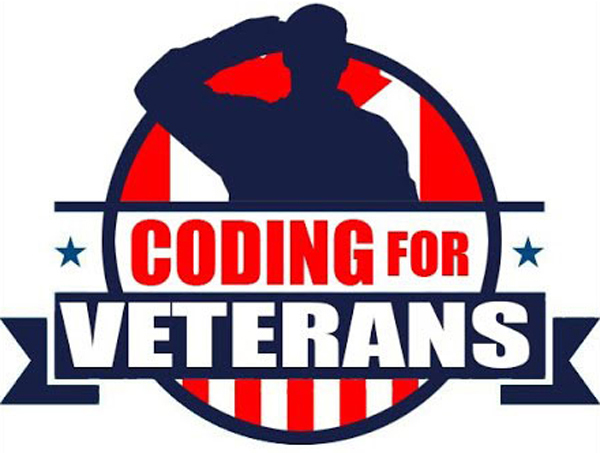The (civilian) world at your fingertips
By Lookout Production on May 12, 2022 with Comments 0
Kateryna Bandura
Editor
—
After retiring from the navy in 2015, Roger Payne wasn’t quite ready to pack in work life. He wanted to transition into a civilian job that would be beneficial to Canada, just as his navy job as a Naval Communicator had been.
The IT world interested him, but he knew he needed additional training, and that’s when he found Coding for Veterans (C4V) through a vocational rehabilitation specialist.
Now, he is on track to obtain industry-recognized qualifications in cybersecurity through the Coding for Veterans program.
“I’m loving every minute of it,” Payne says. “The program is helping me achieve an actual certification, as well as teaching me how to market myself. C4V also puts on seminars for students to meet companies and understand what they’re looking for, and to understand how to market ourselves when we wade out into the unknown private sector.”
Coding for Veterans is a not-for-profit that provides software and cyber security qualification training to veterans and their families in two streams of Canada’s tech sector: software development and cyber security.
The eight-month program is a partnership between Coding for Veterans and the University of Ottawa’s Professional Development Institute (PDI). Graduates receive a certificate from the PDI and industry-recognized qualifications. At the end, the organization helps veterans find job placement opportunities.
There are approximately 200 students in various stages of the program who are veterans and their family members.
Payne started his studies in September 2021 and is currently taking the Cyber Security Network certification program. Upon completing the 650-hour course, he will receive a University of Ottawa Professional Development Certificate and the CISCO Certified Network Associate certification. The course also provides him with the CyberOps Associate certification.
“I think every service member needs to know what C4V offers and that it’s not only an offer to veterans, but also their spouse. I think that’s incredible,” he says.
The greatest challenge he faced throughout his course was discipline.
“You must make sure you set yourself up for success. You need to plan where you’re going to study and try to create an agenda of your study time to keep yourself on track,” he says, adding that if you don’t commit the effort upfront, it quickly becomes easy to fall behind your schedule.
The program helped Payne apply his knowledge to a real-life scenario.
A non-profit veteran’s website was looking to expand their site with a web application for commenting. They hired a private company to develop the application and approached Coding for Veterans to conduct testing on the application before they opened it up to the public. His team immediately found the new application was not sanitizing user input, meaning they could execute code on the web server as a general user.
“I was shocked at how quickly we discovered this serious hole in the application,” he says. “If the application had not been tested, there is a very good possibility that the non-profit group would have been in the news for user information being hijacked, at the very least.”
Alex Beattie, Communications Manager for Coding for Veterans, says COVID-19 caused rapid growth in IT sector job openings, which increased the number of potential veterans in the program.
“There is a projected shortfall of qualified IT professionals in Canada that will exceed 147,000 by the end of 2022, as projected by Canada’s Information and Communications Technology Council,” he says.
Payne says Coding for Veterans is worth looking into for anyone on the fence about programming or cyber security.
“Recruiters seem to be very interested in this program and looking at the global shortage of computer programmers and cyber-related positions, it’s a great time to be getting this type of training,” he says.
Funding is available for students, depending on which category they fall into. In Ontario, the provincial government announced funding for 100 spots for Ontario-based veterans, reservists, current serving members, and families looking to up their skills and retrain into the cyber world. CAF veterans are eligible for the Education Training Benefit from Veterans Affairs Canada. Thanks to corporate partners, other individuals, such as family members of CAF members, are eligible for bursaries.
The program runs online, with students writing either of the three exams upon completion:
- The ISC2 Certified Secure Software Lifecycle Professional exam;
- The ISC2 Certified Information Systems Security Professional (CISSP) exam; or
- The CISCO Certified Network Analyst (CCNA).
The program costs $15,000, payable to the University of Ottawa.
For more info www.codingforveterans.com
Filed Under: Top Stories
About the Author:







